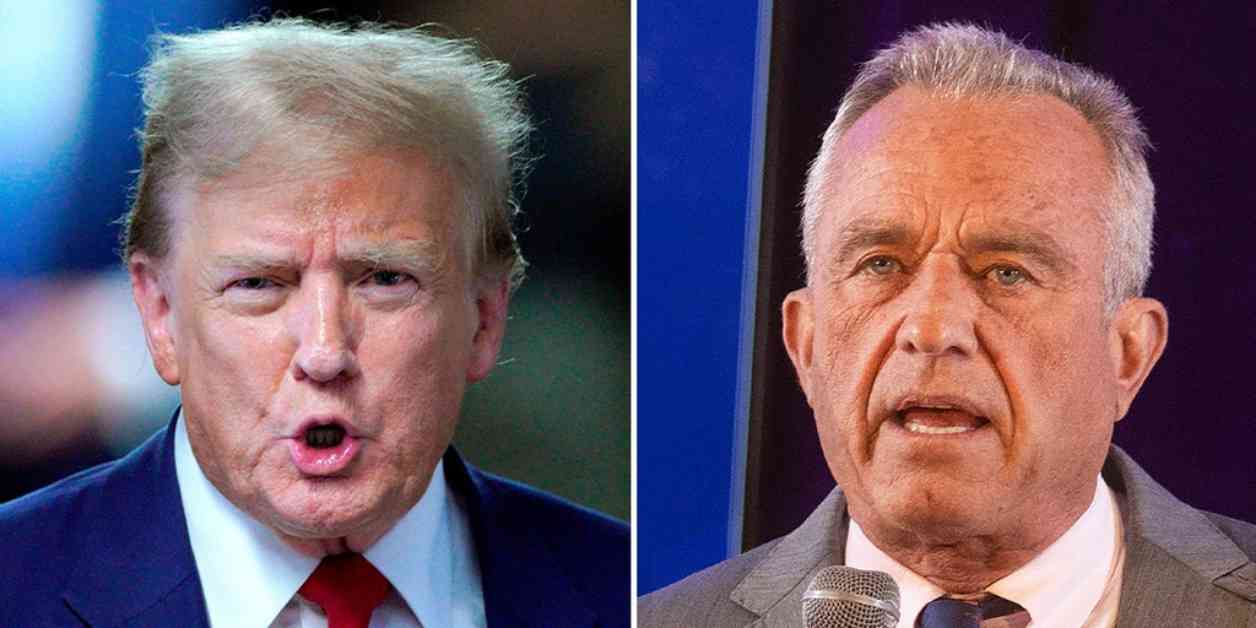Former President Donald Trump took a jab at independent candidate Robert F. Kennedy Jr. for failing to meet the requirements to participate in the upcoming presidential debate. In a video recorded on his private jet, Trump mentioned Kennedy’s lack of support in national polls and insufficient presence on state ballots as the reasons for his disqualification.
Trump expressed his doubts about Kennedy’s debating skills and labeled his ideas as “liberal” and “radical left.” He mentioned the criteria set for candidates to qualify for the debate, emphasizing that Kennedy fell short of the necessary numbers. Despite his criticisms, Trump mentioned that he would like to see Kennedy on the debate stage someday, even though it seems unlikely based on his current standings.
To qualify for the CNN-hosted debate, candidates need to garner at least 15% support in four national polls and be on the ballot in enough states to potentially secure the 270 electoral college votes required to win the election. Kennedy, who is considered the highest-performing candidate outside the two major parties, failed to meet these criteria by the deadline.
Kennedy responded to his exclusion by accusing Presidents Biden and Trump of influencing the decision and criticized CNN for allegedly complying with their demands. He argued that Americans are looking for an independent leader to challenge the two-party system and address pressing issues such as economic disparity, militarism, and public health crises.
The controversy surrounding Kennedy’s exclusion from the debate highlights the challenges faced by candidates outside the traditional political establishment. While his campaign seeks to offer an alternative to the existing partisan divide, the hurdles imposed by debate qualifications and party influence underscore the entrenched nature of the current political landscape.
As the election season progresses, the debate over inclusion, representation, and the role of independent candidates in shaping national discourse will continue to be a key point of contention. The push for diverse voices and perspectives in the electoral process reflects broader aspirations for a more inclusive and participatory democracy.





















